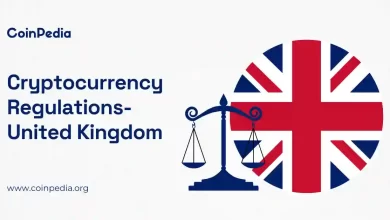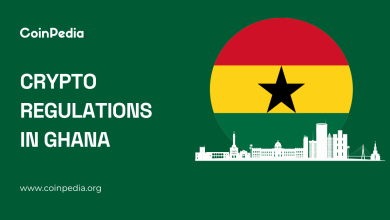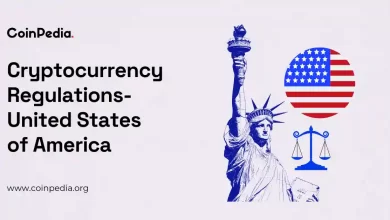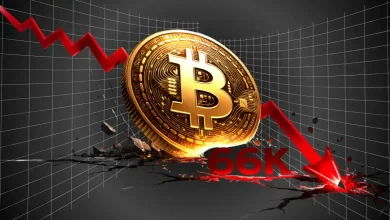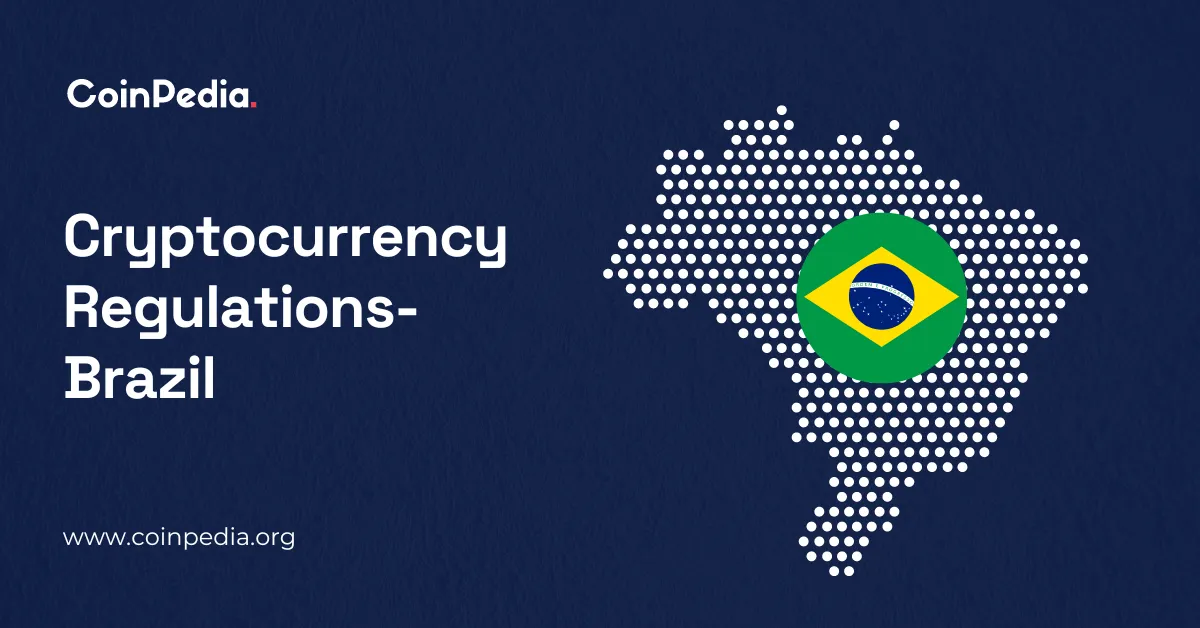
In 2025, Brazil is shaping its regulatory landscape for cryptocurrencies as directed by the Brazilian Virtual Assets Law (BVAL). The law became effective in 2023, and it is currently focusing on ensuring transparency, preventing money laundering, and protecting consumers from fraudsters. Brazil has legalised cryptocurrencies like Bitcoin, but they are not considered legal tender.
The BVAL established taxation on cryptocurrency trading, which must be reported in the annual tax declaration. Brazil has embraced blockchain and cryptocurrency regulations, which have assisted millions of Brazilians in utilizing digital assets. Let’s explore the crypto regulations in Brazil that changed the topical landscape of digital assets in 2025.
Table of contents
- Crypto Laws In Brazil
- Unfolding Crypto Regulation in Brazil 2025
- Who Guides Crypto in Brazil?
- Crypto License in Brazil in 2025
- Crypto Mining in Brazil 2025
- Brazil Moves $318.8 Billion in Crypto Transactions
- Crypto Tax in Brazil
- Crypto Adoption Rate in Brazil 2025
- Brazil Government Stance on Crypto
- Conclusion
- FAQs
Crypto Laws In Brazil
September 19, 2025 – New Forex Rules
Brazil’s central bank (BCB) has proposed new rules for the Forex platforms, which now have to submit data on their clients’ transactions and use designated on/off ramps for client withdrawals and deposits. The consultation period runs until November 2, 2025.
It did not make a direct reference to crypto, but the rules would impact crypto exchange platforms that allow their customers to make international transfers or sell coins for fiat currencies other than the Brazilian real.
June 30, 2025 – Central Bank Temporarily Ceases C&M Software
The Central Bank of Brazil immediately issued a notice to temporarily suspend C&M Software after discovering that hackers had stolen approximately $140 million (R$800 million).
June 17, 2025 – Introduction of Crypto Tracking Software
The National Secretariat of Public Security (SENASP) under Brazil’s Lula Government announced an initiative to track and monitor cryptocurrency transactions. The surveillance tool will be active on major blockchain networks, including Bitcoin, Ethereum, Tron, Binance, Dash, etc.
June 12, 2025 – Brazil’s Strategic Bitcoin Reserve Bill passes First Committee
Brazil’s strategic Bitcoin Reserve Bill 4501/2023 passed the first committee, pushing the country closer to holding $BTC as part of its national reserve. Bill Project No. 4,501 of 2024 “Provides for the formation of a Sovereign Strategic Reserve of Bitcoins by the Federal Government and other measures”, states the proposal of the bill.
June 12, 2025 – Crypto Tax
Under Provisional Measure 1303, a flat 17.5% tax now applies to all cryptocurrency gains, replacing the former progressive regime.
February 17, 2025 – Brazilian Superior Court of Justice (STJ) Subjects Crypto to Seizure in Enforcement Proceedings
The Superior Court of Justice in Brazil affirmed that Brazil’s lower courts subpoena crypto exchanges to trace and seize cryptocurrencies held by the debtor. This law was enacted after failing to identify a debtor’s traditional financial assets. It allows the courts to seize crypto assets potentially held by debtors.
Unfolding Crypto Regulation in Brazil 2025
Brazil has enacted foundational legislation and is moving toward detailed operational rules and licensing requirements for cryptocurrency in 2025. The procedure is to develop recent implementations and finalize them after thorough examinations. Some key developments in crypto regulations are:
- The BVAL (Law no. 14,478/22) is the first crypto asset law in Brazil, which was implemented in June 2023. It redefines the crypto space in Brazil by defining ‘virtual asset service providers’ (VASPs) as a legal entity under the permitted conditions.
- BVAL had accompanying laws to enhance the framework for cryptocurrency, which were set to be published in 2025 after public consultations to gather feedback, which ended in February 2025. The Central Bank is leading this development, offering detailed guidelines for consumers in crypto trading.
- Brazil has enacted the licensing of crypto business, which requires registering as Digital Asset Service Providers (DASP) operating with the Central Bank of Brazil (BCB) authorization. The future regulations in this category are anticipated to be finalized in 2025.
- After finalizing the new regulations in DASP, it will enhance consumer rights and mandate strong cybersecurity standards. In addition, it will require clear risk disclosures to prevent consumers from any tricks laid by the fraudsters.
- After gaining a boost in stablecoin utility, further regulations involve ensuring transparency, anti-money laundering, and curbing tax evasion. It aims to bring a long-term stable market for crypto with KYC and AML requirements for users.
- Binance has launched the ‘Blockchain on the road’ event, in which Brazil is likely to see a significant growth in blockchain education. The event will be held from 5 to 7 August 2025, focusing on education and networking leaders and entrepreneurs emerging in the technological and tokenization arena.
These are the major developments Brazil has made in cryptocurrency, compiled with global standards set by legal bodies.
Who Guides Crypto in Brazil?
- Brazil’s crypto regulations are guided by international standards, particularly the Financial Action Task Force (FATF) recommendations. The FATF standards include the travel rule, which allows obtaining and transmitting information on both the originator and beneficiary in digital trading. It also sets rules for combating money laundering, terrorist financing, and proliferation financing.
- The Central Bank of Brazil (BCB) handles the provision of Virtual Digital Assets in Brazil. It oversees the financial aspect, including licensing related to cryptocurrency. But it has not yet published specific rules for provision or compliance rules for crypto trading.
- The Securities and Exchange Commission (CVM) plays a crucial role in regulating crypto, which is classified as a security. For example, if a digital token is classified as security, it must comply with CVM rules for issuance and distribution after registration.
These agencies applied taxation to crypto in Brazil, offering an enhanced and safer space for consumers and sellers.
Crypto License in Brazil in 2025
Brazil does not have a specific ‘crypto license’ as of 2025; however, entities providing crypto-related services must register with the Central Bank and comply with the framework established by Law No. 14.478/2022. The law came into effect on June 20, 2023.
Crypto Mining in Brazil 2025
Crypto mining is legal in Brazil as of 2025, and it is subject to taxation. Miners must comply with rules set by the Central Bank of Brazil (BCB), which oversees Virtual Asset Service Providers (VASPs). In recent years, the country has seen a significant increase in mining activities due to its regulatory environment. Brazil also has abundant renewable energy to support mining.
Brazil Moves $318.8 Billion in Crypto Transactions
- According to Chainalysis’s report, Brazil moved $318.8 billion in crypto assets from July 2024 to June 2025, representing one-third of the Latin American (LATAM) crypto economy.
- The report described Brazil as the “most dynamic crypto market” with a 109.9% period-over-period growth rate.
- Stablecoins also played a crucial role in this, as more than 90% of Brazilian crypto flows are stablecoin-related.
Crypto Tax in Brazil
- The Federal Revenue Services (RFB) has stated that blockchains like Bitcoin and Ethereum are required to be publicly visible. A Brazilian individual is required to report cryptocurrency profits and capital gains by the last working day of April.
- Selling crypto or trading it for another crypto is subject to capital gains tax, while receiving cryptocurrency as payment is subject to income tax. RFB has not yet disclosed a guideline on stolen or lost crypto.
- The previous progressive/tiered regime is replaced by this flat rate of 17.5% and the previous exemption for monthly gains under 35,000 reais has also been abolished.
A table is given below to assist calculation of crypto tax.
| Category | Tax Rate | Details |
| All Capital Gains on Crypto | 17.5% | Applies to all crypto-related capital gains, no matter the volume or origin. |
| Tax Exemption | None | All gains (big or small) are subject to tax |
| Tax Reporting | Must be repotted quarterly | Capital gains must be reported four times per year. All disposals must be declared for each quarter. |
Summary of crypto tax in 2025:
| Category | Threshold per month | Tax rate |
| Capital gains (domestic) | R$35,000 | 15%-22.5% |
| Capital gains (foreign exchange) | R$6000 | 0%022.5% |
| Income from crypto | Any amount | 7.5%27.5% |
Crypto Adoption Rate in Brazil 2025
Brazil’s crypto adoption rate is constantly growing in 2025, and presently it is projected to reach 31.9 million users. The user penetration rate is also expected to reach around 14.58% with a significant growing interest in cryptocurrency among Brazilians.
Brazil was one of the top 10 countries in the world with leading crypto adoption. It is believed that Brazil will skyrocket the crypto adoption rate with revenue of US$353.5 million by 2030. In addition, the compound annual growth will rise up to 16.5% in the cryptocurrency market from 2025-2030.
With new regulations and an enhanced framework, Brazil is the fastest-growing regional market in Latin America, with growing development in crypto assets. Presently, around 17.5% of the population has adopted crypto, and it is anticipated to rise further in the upcoming days.
Brazil Government Stance on Crypto
As of 2025, the Brazilian government has not disclosed a significant amount of crypto holdings. However, with growing user penetration in crypto among Brazilians, the estimated number seems to be sizable.
The Brazilian government has been highly active in developing crypto regulations, showing a positive attitude towards blockchain and other technological and digital assets. The country is likely to launch a “Real Digital”, Brazil’s central bank digital currency (CBDC).
In March 2025, the government representative and the executive branch held a discussion that involved the strategic value of Bitcoin. However, it does not confirm any actual holdings or reserve policy of cryptocurrency in the Brazilian government’s hands.
Conclusion
Brazil is one of the fastest-growing crypto markets in Latin America. The government plans to improve regulations and expand its crypto holdings. Although exact figures are unknown, recent developments suggest significant accumulation of digital assets. Brazil is expected to set new records and reach new highs in the crypto market.
Never Miss a Beat in the Crypto World!
Stay ahead with breaking news, expert analysis, and real-time updates on the latest trends in Bitcoin, altcoins, DeFi, NFTs, and more.
FAQs
Yes, cryptocurrencies like Bitcoin are legal in Brazil, though not legal tender. The Brazilian Virtual Assets Law (BVAL) regulates digital assets, ensuring transparency and consumer protection.
Crypto profits from selling or trading are subject to capital gains tax (15%-22.5%, depending on profit and transaction type). Income from receiving crypto is taxed as income. Monthly foreign transactions over $30,000 must be reported.
The Central Bank of Brazil (BCB) primarily oversees the financial aspects and licensing of virtual assets. The Securities and Exchange Commission (CVM) regulates crypto classified as securities. Both adhere to FATF standards.
Trust with CoinPedia:
CoinPedia has been delivering accurate and timely cryptocurrency and blockchain updates since 2017. All content is created by our expert panel of analysts and journalists, following strict Editorial Guidelines based on E-E-A-T (Experience, Expertise, Authoritativeness, Trustworthiness). Every article is fact-checked against reputable sources to ensure accuracy, transparency, and reliability. Our review policy guarantees unbiased evaluations when recommending exchanges, platforms, or tools. We strive to provide timely updates about everything crypto & blockchain, right from startups to industry majors.
Investment Disclaimer:
All opinions and insights shared represent the author's own views on current market conditions. Please do your own research before making investment decisions. Neither the writer nor the publication assumes responsibility for your financial choices.
Sponsored and Advertisements:
Sponsored content and affiliate links may appear on our site. Advertisements are marked clearly, and our editorial content remains entirely independent from our ad partners.


